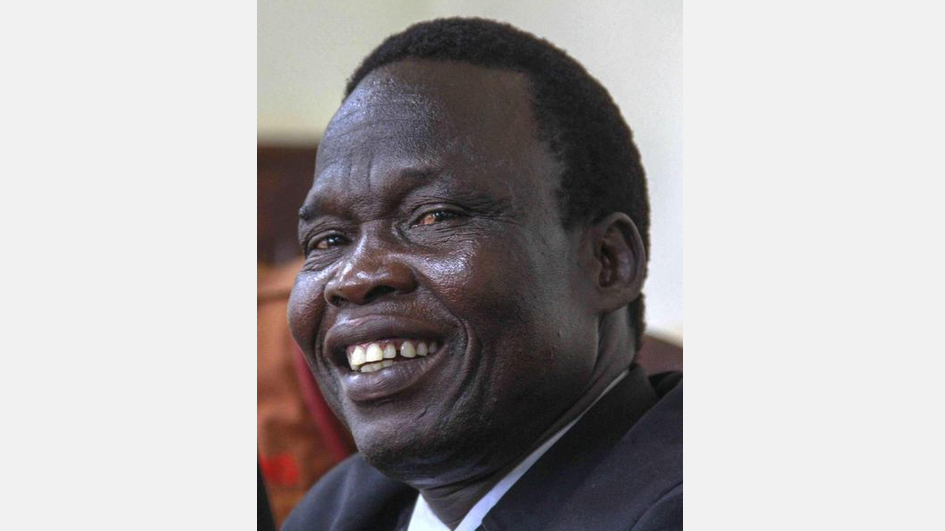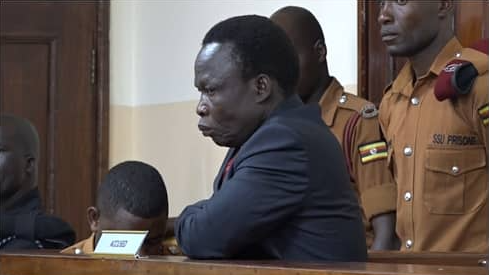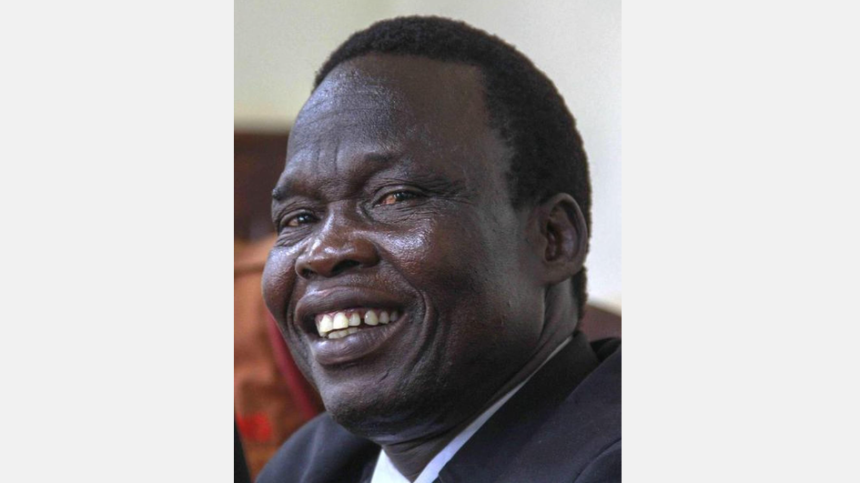1. Introduction: A Significant Verdict in the Quest for Justice
Former LRA Commander recent sentencing of former Lord’s Resistance Army (LRA) commander Thomas Kwoyelo to 40 years in prison marks a pivotal moment in the ongoing efforts to bring accountability for war crimes committed during the brutal conflict in northern Uganda. The ruling not only serves as a significant legal milestone but also reflects the complexities and challenges of transitional justice in a post-conflict society. This article will explore the background of the LRA, the specific charges against Kwoyelo, the implications of his sentencing, and the broader context of justice for victims of the conflict.
2. The Lord’s Resistance Army: Origins and Impact
The LRA, a rebel group founded in the late 1980s by Joseph Kony, emerged from a complex tapestry of political, social, and ethnic grievances in Uganda. Initially claiming to fight for the rights of the Acholi people, the LRA quickly became infamous for its brutal tactics, Former LRA Commander including mass abductions, sexual violence, Former LRA Commander and the recruitment of child soldiers. The group’s violent insurgency resulted in the deaths of thousands and the displacement of millions, creating one of the worst humanitarian crises in the region.
Kwoyelo, who was one of Kony’s top commanders, played a significant role in the LRA’s operations. His actions during the conflict contributed to the suffering of countless civilians and left a lasting scar on the affected communities. Understanding the context of the LRA’s rise and the atrocities it committed is crucial to grasping the gravity of Kwoyelo’s sentencing.
3. Charges Against Kwoyelo: A Legal Overview
Kwoyelo was arrested in 2009 and faced a range of serious charges before the International Crimes Division of the High Court in Uganda. The charges included:
- Murder and Attempted Murder: Accused of orchestrating and participating in attacks that resulted in the deaths of numerous civilians.
- Kidnapping: Responsible for the abduction of children and young people, many of whom were forced into combat or sexual slavery.
- Torture and Inhumane Treatment: Involved in acts that inflicted severe pain or suffering on captured individuals.
Kwoyelo’s case was particularly significant as he became the first LRA commander to face trial in Uganda, marking a crucial step towards accountability in a country that has struggled to address the legacy of the conflict.  For the more information click on this link
For the more information click on this link
4. The Trial: Legal Proceedings and Challenges
Kwoyelo’s trial commenced in 2015, facing numerous delays and challenges that are often typical in cases involving war crimes. The legal proceedings were complicated by issues such as witness intimidation, Former LRA Commander the difficulty of securing testimonies from victims who had suffered immense trauma, Former LRA Commander and the complexities of international law.
One notable aspect of the trial was the debate surrounding the legality of the evidence presented. The prosecution relied heavily on testimonies from survivors and former LRA fighters, many of whom faced the challenge of recalling events that occurred years prior. The defense, Former LRA Commander on the other hand, sought to discredit the witnesses’ credibility and questioned the fairness of the proceedings.
Despite these challenges, the trial proceeded, and the testimonies presented painted a harrowing picture of the atrocities committed by the LRA under Kwoyelo’s command. The emotional weight of the survivors’ stories contributed to the broader narrative of the impact of the conflict on innocent lives.
5. Sentencing: Implications of the Verdict
On [date of sentencing], Kwoyelo was sentenced to 40 years in prison, a verdict that elicited a range of reactions from various stakeholders. For many victims and survivors, Former LRA Commander the sentence represented a measure of justice and acknowledgment of their suffering. The ruling served as a symbolic victory for those who have long sought accountability for war crimes in Uganda.
However, the sentence also sparked discussions about its adequacy. Some victims and human rights advocates argued that a 40-year sentence was insufficient given the scale and brutality of the crimes committed. The debate over the appropriate punishment for perpetrators of war crimes is a contentious issue, Former LRA Commander often influenced by cultural, legal, and moral considerations.
6. The Broader Context of Transitional Justice in Uganda
Kwoyelo’s sentencing is part of a larger conversation about transitional justice in Uganda, a country grappling with the legacy of decades of conflict. The Ugandan government has faced criticism for its handling of war crimes and accountability, Former LRA Commander with many arguing that the focus has been more on reconciliation than on justice for victims.
Transitional justice encompasses various mechanisms, including truth commissions, reparations, and criminal prosecutions, aimed at addressing past human rights violations and fostering national healing. Uganda’s approach has included a mix of traditional justice mechanisms and formal legal processes, Former LRA Commander but challenges remain in ensuring that victims receive the recognition and support they deserve.
7. Victims’ Voices: The Human Cost of War Crimes
The true impact of Kwoyelo’s actions can be understood through the voices of the victims and survivors who endured the horrors of the LRA’s insurgency. Many of those affected have shared their stories of abduction, forced recruitment, and sexual violence, Former LRA Commander highlighting the long-lasting scars left by the conflict.
For many survivors, the journey toward healing is fraught with challenges. The trauma of their experiences, coupled with the stigma associated with being a victim of war crimes, Former LRA Commander can hinder their reintegration into society. Support systems and mental health resources are critical in helping survivors rebuild their lives and find a sense of normalcy.
8. The Role of the International Community
The international community has played a significant role in addressing the aftermath of the LRA conflict and supporting efforts toward accountability. Organizations such as the International Criminal Court (ICC) and various human rights NGOs have been instrumental in raising awareness of the atrocities committed by the LRA and advocating for justice.
While Kwoyelo’s trial was conducted within Uganda’s legal framework, the involvement of international bodies has helped to amplify the voices of victims and emphasize the importance of holding perpetrators accountable. Former LRA Commander The international community’s continued support for Uganda’s transitional justice efforts remains essential in ensuring that the lessons of the past are not forgotten.  For the more information click on this link
For the more information click on this link
9. Future Prospects: Lessons Learned and Moving Forward
Kwoyelo’s sentencing represents a crucial step in Uganda’s journey toward justice, but it is only one part of a much larger narrative. As the country continues to grapple with the aftermath of the LRA conflict, several lessons can be drawn from this case:
- Importance of Victim-Centered Approaches: Ensuring that the voices and needs of victims are at the forefront of transitional justice initiatives is critical for achieving lasting healing and reconciliation.
- Balancing Justice and Reconciliation: Striking the right balance between holding perpetrators accountable and fostering national unity remains a complex challenge for Uganda. Both elements are essential for sustainable peace.
- Strengthening Legal Frameworks: Continued efforts to enhance the legal framework for prosecuting war crimes will help to ensure that future cases are handled with the rigor and fairness necessary for justice.
10. Conclusion: A Step Toward Accountability
Thomas Kwoyelo’s sentencing is a significant milestone in the long and arduous journey toward justice for victims of the LRA conflict. While the road ahead remains challenging, the verdict sends a clear message that accountability for war crimes is possible, Former LRA Commander and the voices of victims will not be silenced.
As Uganda continues to navigate the complexities of its past, the international community and local stakeholders must remain committed to supporting efforts that prioritize justice, healing, Former LRA Commander and the prevention of future atrocities. The fight for accountability is ongoing, Former LRA Commander but the resilience of survivors and the determination of advocates provide hope for a brighter future in which justice prevails. ALSO READ:-Myanmar Rebels Take Control of Strategic Road to Mandalay: A Major Morale Booster 2024





